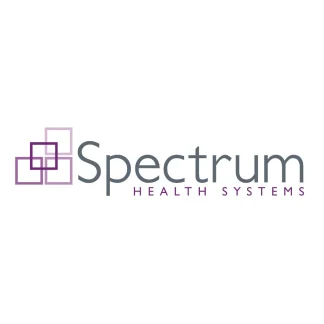SaVida Health
SaVida Health, formerly Experience Wellness Centers, is a private healthcare pra...
Spectrum Health Systems – Merrick Street is a quaint and picturesque drug and alcohol addiction treatment center within walking distance of downtown Worcester, Massachusetts. Founded in 1969, this nonprofit drug rehab center has provided thousands of people with the help they need during substance abuse treatment programs.
Spectrum Health Systems – Merrick Street provides a comprehensive continuum of addiction treatment services. However, the Merrick Street branch focuses on those dealing with DUIs. To learn more, have a look below:
This drug and alcohol addiction treatment center operates a substance abuse recovery impaired driving program. This program runs for 16 weeks and is suited to those with a first conviction for driving under the influence. Typically individuals are court referred, and participation is mandatory. This program also requires that clients attend sixteen two hour sessions and two AA meetings.
Spectrum Health Systems – Merrick Street offers a second offender aftercare program. This court referred program helps those who have multiple DUI convictions. Individuals must attend weekly counseling sessions for at least one year. Clients must complete this program according to the Registry of Motor Vehicles to get their vehicle license back.
Contact us for more information: (508) 797-6100

Connect with Spectrum Health Systems - Merrick Street by calling their admissions team directly.
(508) 797-6100 Website Get DirectionsThe Commission on Accreditation of Rehabilitation Facilities (CARF) is a non-profit organization that specifically accredits rehab organizations. Founded in 1966, CARF's, mission is to help service providers like rehab facilities maintain high standards of care.
CARF Accreditation: Yes
Research clearly demonstrates that recovery is far more successful and sustainable when loved ones like family members participate in rehab and substance abuse treatment. Genetic factors may be at play when it comes to drug and alcohol addiction, as well as mental health issues. Family dynamics often play a critical role in addiction triggers, and if properly educated, family members can be a strong source of support when it comes to rehabilitation.
Group therapy is any therapeutic work that happens in a group (not one-on-one). There are a number of different group therapy modalities, including support groups, experiential therapy, psycho-education, and more. Group therapy involves treatment as well as processing interaction between group members.
In individual therapy, a patient meets one-on-one with a trained psychologist or counselor. Therapy is a pivotal part of effective substance abuse treatment, as it often covers root causes of addiction, including challenges faced by the patient in their social, family, and work/school life.
Trauma therapy addresses traumatic incidents from a client's past that are likely affecting their present-day experience. Trauma is often one of the primary triggers and potential causes of addiction, and can stem from child sexual abuse, domestic violence, having a parent with a mental illness, losing one or both parents at a young age, teenage or adult sexual assault, or any number of other factors. The purpose of trauma therapy is to allow a patient to process trauma and move through and past it, with the help of trained and compassionate mental health professionals.
Group therapy is any therapeutic work that happens in a group (not one-on-one). There are a number of different group therapy modalities, including support groups, experiential therapy, psycho-education, and more. Group therapy involves treatment as well as processing interaction between group members.
In individual therapy, a patient meets one-on-one with a trained psychologist or counselor. Therapy is a pivotal part of effective substance abuse treatment, as it often covers root causes of addiction, including challenges faced by the patient in their social, family, and work/school life.
Trauma therapy addresses traumatic incidents from a client's past that are likely affecting their present-day experience. Trauma is often one of the primary triggers and potential causes of addiction, and can stem from child sexual abuse, domestic violence, having a parent with a mental illness, losing one or both parents at a young age, teenage or adult sexual assault, or any number of other factors. The purpose of trauma therapy is to allow a patient to process trauma and move through and past it, with the help of trained and compassionate mental health professionals.
In individual therapy, a patient meets one-on-one with a trained psychologist or counselor. Therapy is a pivotal part of effective substance abuse treatment, as it often covers root causes of addiction, including challenges faced by the patient in their social, family, and work/school life.
Trauma therapy addresses traumatic incidents from a client's past that are likely affecting their present-day experience. Trauma is often one of the primary triggers and potential causes of addiction, and can stem from child sexual abuse, domestic violence, having a parent with a mental illness, losing one or both parents at a young age, teenage or adult sexual assault, or any number of other factors. The purpose of trauma therapy is to allow a patient to process trauma and move through and past it, with the help of trained and compassionate mental health professionals.
Trauma therapy addresses traumatic incidents from a client's past that are likely affecting their present-day experience. Trauma is often one of the primary triggers and potential causes of addiction, and can stem from child sexual abuse, domestic violence, having a parent with a mental illness, losing one or both parents at a young age, teenage or adult sexual assault, or any number of other factors. The purpose of trauma therapy is to allow a patient to process trauma and move through and past it, with the help of trained and compassionate mental health professionals.
SaVida Health, formerly Experience Wellness Centers, is a private healthcare pra...
New Beginnings Wellness Center - Main Street is located in Leicester, Massachuse...
Community Healthlink - Beryl’s House serves women, including pregnant and postpa...
Kelly Rehabilitation Clinic is a private rehab located in Worcester, Massachuset...